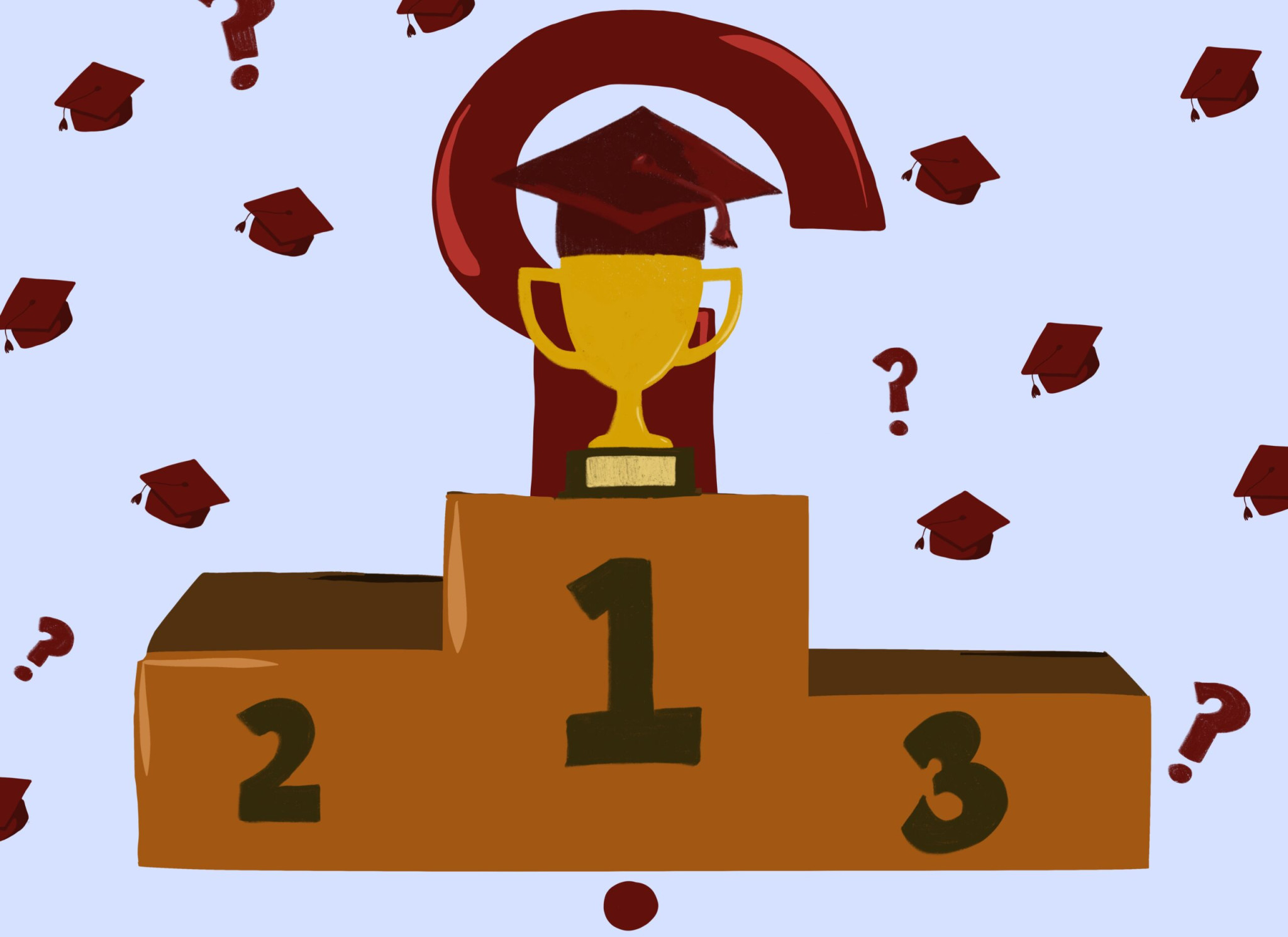Every year, over 25,000 valedictorians are named across the country. Being valedictorian is an honor typically awarded to the student with the highest GPA and the best class rank. Although this tradition is practiced at many schools, Berkeley High School does not have a valedictorian, a system that greatly benefits BHS students. The title is not indicative of future success, and the pressure to be valedictorian deeply harms students’ mental health. This is why more high schools should follow BHS’ example and do away with the concept of a valedictorian.
The idea of a valedictorian dates back to 1772. It was created at the College of William and Mary when the governor of the Virginia colony wanted to show his appreciation to the student body. The governor created an award for the most skilled student in Latin writing. Throughout the 1800s, the valedictorian award grew, and by the 1920s, most high schools had adopted it. While this award may have been beneficial in the past, new studies show that the drawbacks outweigh the benefits, and it's time to retire the award.
While valedictorians may have the best grade point average, studies show that most valedictorians don’t go on to revolutionize the world. A study from Boston College follows high school valedictorians after they go to college and their lives beyond. Almost all of these former students lead a successful life, and many go on to graduate school, but “valedictorians aren’t likely to be the future’s visionaries,” according to Karen Arnold, the researcher of the study. This may be because the valedictorian award is solely based on a student's grades and nothing else. The students who commonly earn the title of valedictorian are great at following instructions, however, this award does not reward the unique thinking that often results in unprecedented achievements.
Additionally, the pressures of trying to be the top performer can be a lot for any student. According to a PEW research study, 61 percent of teens say they feel a lot of pressure to get good grades. Attempting to be the valedictorian is likely to factor into this pressure. Students should not risk their mental health just to have a chance to give a speech at their high school graduation.
Beyond those reasons, it would be impossible for BHS to choose just one valedictorian. Because of BHS's grading system, the best GPA a student can earn is 4.0, meaning a student received A’s their entire high school career. Every year at BHS, hundreds of students may have a 4.0 GPA, according to John Villavicencio, BHS director of student activities, so it would be impossible to determine who should be the one and only valedictorian.
Instead of having the valedictorian give a speech at graduation, BHS allows all students to audition to give a speech. In previous years, students recited their drafted speeches to a committee made up of the BHS principal, the dean of student activities, and a group of fellow seniors. This committee then chose the students with the best performance and speeches, while ensuring that many different types of BHS students are represented.
It can be easy to assume that not having a valedictorian is a problem. However, this assumption is wrong. Beyond the fact that choosing a valedictorian is not feasible for BHS, the valedictorian award is not a true marker of whether someone will accomplish extraordinary things, and it can cause significant stress among students. BHS is ahead of most high schools by not having a valedictorian, and, hopefully, other schools will choose to eliminate the tradition as well.





